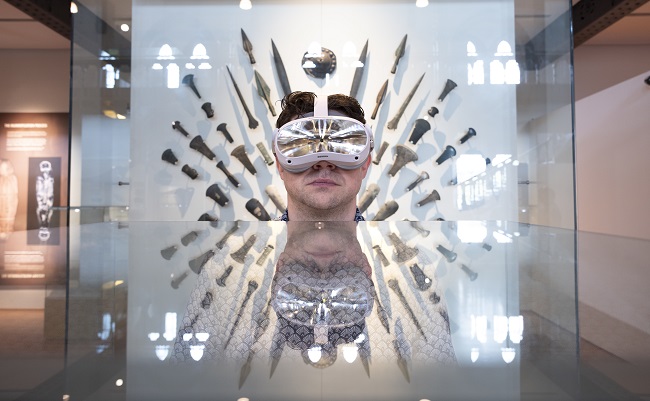The University of Glasgow has revealed an ambitious project with a budget of £5.6 million (equivalent to $6.8 million) to create a culture and heritage digital platform that will allow visitors to explore museums in the metaverse.
The virtual platform is set to offer a rich selection of museums, historic sites, artifacts, and engaging interactive experiences. Within the digital space, content creators will also have the opportunity to craft narratives using virtual objects and environments.
While this virtual solution will not replace the physical museum experience, it presents an alternative, free from the limitations of cost, geographical distance, and accessibility that can hinder physical museum exhibitions and restrict audience reach.
Professor Neil McDonnell, leading the project at the University of Glasgow, emphasized, “It is estimated that over 90% of objects in collections can’t be seen as they are in storage.” The virtual platform is poised to change this by accommodating collections of any size, showcasing distant objects side by side, and granting access from anywhere across the globe.
This initiative is a collaborative effort between the University of Glasgow, the Edify learning platform, and historic authorities such as Historic Environment Scotland and National Museums Scotland. In the interim, the UK Government’s Innovation Accelerator program will serve as the funding source for the project’s development.
The University of Glasgow’s project aligns with a broader trend of museums embracing the possibilities of Web3 and the metaverse.
In July, The British Museum partnered with The Sandbox and LaCollection to enter the metaverse by introducing non-fungible token (NFT) artworks.
In 2022, Dubai’s Museum of the Future announced its collaboration with the Binance NFT marketplace for the launch of its inaugural NFT collection titled “The Most Beautiful NFTs in the Metaverse.”


